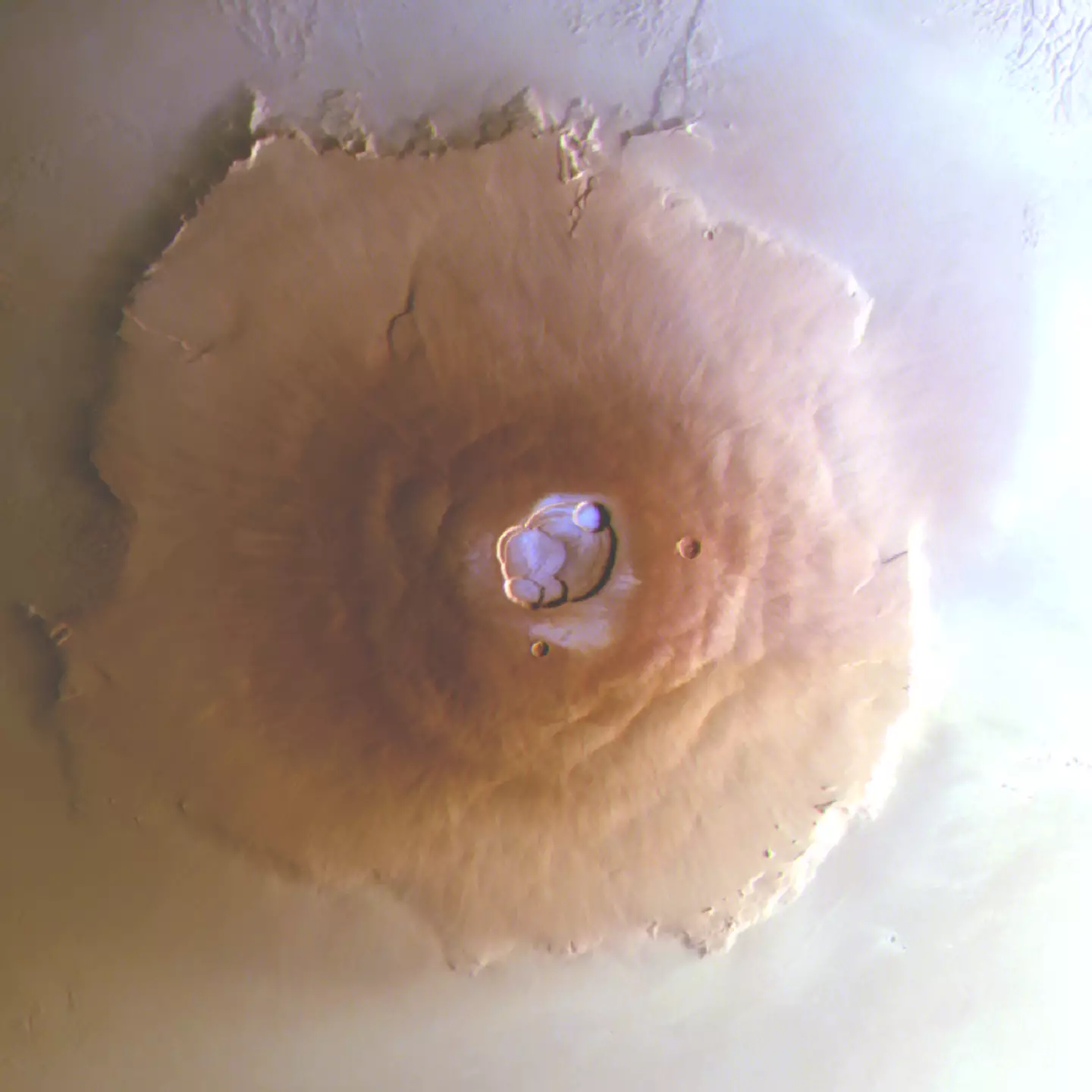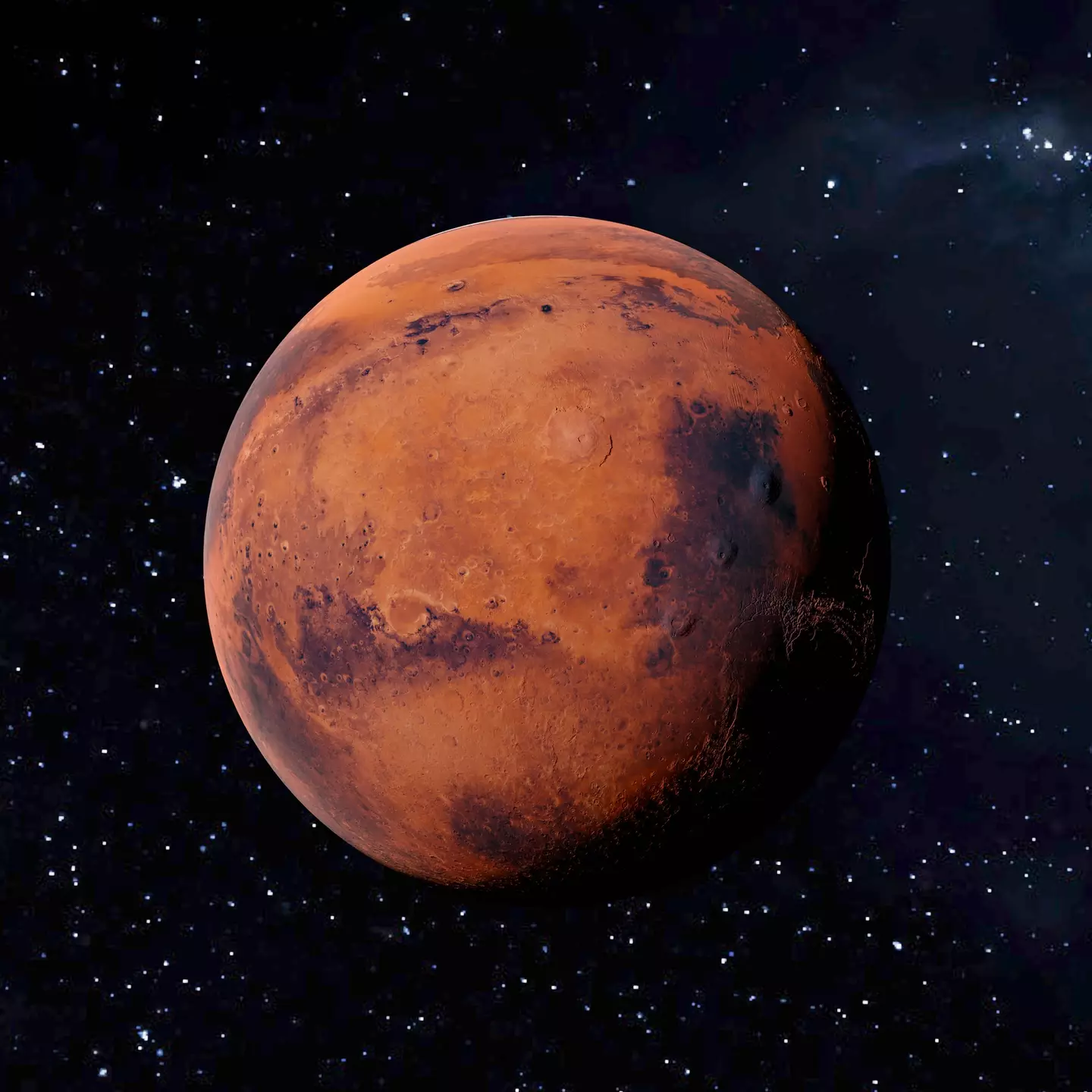
After thinking it was impossible for frost to exist on Mars, tonnes of it have been found at the equator of the Red Planet for the first time.
This could be vital for future exploration as scientists are now modeling where water exists on the planet and could help in the search for life outside of Earth.
The frost was found by two European Space Agency (ESA) spacecraft on top of Olympus Mons, which is the largest mountain in the solar system.
At 16 miles high, it’s roughly three times bigger than Mount Everest.
Advert

The patches of Martian frost appear around sunrise before evaporating in the heat of the sunlight.
Despite being a thin layer - about the thickness of a human hair - there is a lot of it spread out across three peaks.
In fact, there’s 150,000 tonnes of frost that, if melted, could fill around 60 Olympic swimming pools, which is the equivalent to about 29.4 million gallons of water.
Advert
According to space.com, Adomas Valantinas, who made the discovery of “forbidden frost” on Mars as a PhD student at the University of Bern, Switzerland, explained why it hadn’t been found until now, saying: “Firstly, we need an orbit that lets us observe a location in the early morning.
“While ESA's two Mars orbiters – Mars Express and TGO – have such orbits and can observe at all times of day, many from other agencies are instead synchronized to the sun and can only observe in the afternoon.
“Secondly, frost deposition is linked to colder Martian seasons, making the window for spotting it even narrower.
“We happened to be looking for frost near the equator for some other research but didn't expect to see it on Mars’s volcano tops.
Advert
“Finding water on the surface of Mars is always exciting, both for scientific interest and for its implications for human and robotic exploration.”

Olympus Mons, where the frost sits, the largest of 12 volcanoes in Mars’ Tharsis area. The region is home to huge volcanoes that tower over the equator. Its fourth largest volcano, known as Pavonis, is around the same size as Mount Everest.
This frost isn’t the only recent and exciting Martian discovery - scientists found holes in the surface of the planet and they are yet to explore what’s inside.
Advert
While excavation of these caves could be difficult, one explanation could be that there are underground lava tubes on Mars - much like we have on Earth around volcanoes in Hawaii.